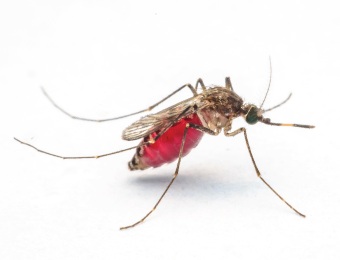
7 Things Women Should Know
YUTTASIN LUAMPRAPAT, M.D.
Although cervical cancer is the second most common cancer after breast cancer, it is the leading cause of death from cancer among Thai women. This is because in the early stages or precancerous stages of cervical cancer, patients often have no symptoms. Thai women may feel embarrassed to undergo screening until it's too late to treat the disease effectively, leading to fatal consequences. Learning and understanding about this can help prevent women from succumbing to cervical cancer.
1. Cervical cancer can occur in all women, regardless of whether they have had sexual intercourse or not.
The cause of cervical cancer is primarily due to infection with the Human Papillomavirus (HPV), which accounts for more than 90% of cases. HPV is usually transmitted through sexual contact, although it can also be transmitted through non-sexual means. It is commonly found around the external genitalia of women, including the cervix, vagina, and vulva. Risk factors that increase a woman's chances of developing cervical cancer include early sexual activity, frequent changes in sexual partners, having multiple children, smoking, as well as having immune system disorders such as systemic lupus erythematosus (SLE) or being HIV-positive.
2. Receiving the HPV vaccine to build immunity against the HPV infection
can be done before the first sexual intercourse. It is recommended for individuals aged 9 to 26 years old. The vaccine is administered in three doses. It helps reduce the risk of cervical cancer by up to 70%. Even if someone has already had sexual intercourse, they can still receive the vaccine. However, the vaccine is most effective when given before exposure to any HPV strains contained in the vaccine.
3. Screening for cervical cancer
should be done within 3 years after the first sexual intercourse. For individuals who have never had sexual intercourse, screening can begin at the age of 30 and above. It is recommended to perform screening along with regular health check-ups. This can be done through a Pap smear (ThinPrep) combined with HPV testing.
4. ThinPrep cervical cancer screening
provides more detailed results compared to traditional Pap tests. It involves cytological examination of cells, similar to the standard Pap test. Nowadays, it is common to combine ThinPrep with HPV testing, which is a molecular biology technique with high accuracy. This combination can detect abnormalities in cervical cells and HPV infections that can cause cancer, either early on or if the test results are normal, it can safely extend the screening interval up to 2 years.
5. abnormal cervical cells are detected
If abnormal cervical cells are detectedbefore they develop into cancer, they can be treated and cured.
6. Even after screening, there's still a risk.
Cervical cancer is a slow-developing disease, taking time to progress to cancer. However, it can be treated effectively if detected early. Therefore, regular cervical cancer screening should be done as recommended by your healthcare provider.
7. Cervical cancer in its early stages often doesn't present any symptoms.
However, if there's abnormal vaginal bleeding, such as bleeding between periods, prolonged menstrual periods, or bleeding after menopause, it's important to promptly see a gynecologist for a definitive diagnosis. Additionally, if the cancer has progressed, it may spread to other organs, resulting in symptoms like back pain, blood in the urine or stool, or acute kidney injury.
1. Cervical cancer can occur in all women, regardless of whether they have had sexual intercourse or not.
The cause of cervical cancer is primarily due to infection with the Human Papillomavirus (HPV), which accounts for more than 90% of cases. HPV is usually transmitted through sexual contact, although it can also be transmitted through non-sexual means. It is commonly found around the external genitalia of women, including the cervix, vagina, and vulva. Risk factors that increase a woman's chances of developing cervical cancer include early sexual activity, frequent changes in sexual partners, having multiple children, smoking, as well as having immune system disorders such as systemic lupus erythematosus (SLE) or being HIV-positive.
2. Receiving the HPV vaccine to build immunity against the HPV infection
can be done before the first sexual intercourse. It is recommended for individuals aged 9 to 26 years old. The vaccine is administered in three doses. It helps reduce the risk of cervical cancer by up to 70%. Even if someone has already had sexual intercourse, they can still receive the vaccine. However, the vaccine is most effective when given before exposure to any HPV strains contained in the vaccine.
3. Screening for cervical cancer
should be done within 3 years after the first sexual intercourse. For individuals who have never had sexual intercourse, screening can begin at the age of 30 and above. It is recommended to perform screening along with regular health check-ups. This can be done through a Pap smear (ThinPrep) combined with HPV testing.
4. ThinPrep cervical cancer screening
provides more detailed results compared to traditional Pap tests. It involves cytological examination of cells, similar to the standard Pap test. Nowadays, it is common to combine ThinPrep with HPV testing, which is a molecular biology technique with high accuracy. This combination can detect abnormalities in cervical cells and HPV infections that can cause cancer, either early on or if the test results are normal, it can safely extend the screening interval up to 2 years.
5. abnormal cervical cells are detected
If abnormal cervical cells are detectedbefore they develop into cancer, they can be treated and cured.
6. Even after screening, there's still a risk.
Cervical cancer is a slow-developing disease, taking time to progress to cancer. However, it can be treated effectively if detected early. Therefore, regular cervical cancer screening should be done as recommended by your healthcare provider.
7. Cervical cancer in its early stages often doesn't present any symptoms.
However, if there's abnormal vaginal bleeding, such as bleeding between periods, prolonged menstrual periods, or bleeding after menopause, it's important to promptly see a gynecologist for a definitive diagnosis. Additionally, if the cancer has progressed, it may spread to other organs, resulting in symptoms like back pain, blood in the urine or stool, or acute kidney injury.
31 Jul, 2022

YUTTASIN LUAMPRAPAT, M.D.
Specialties Obstetrics and Gynaecology, Gynaecological Oncology
 EN
EN
 TH
TH CN
CN









